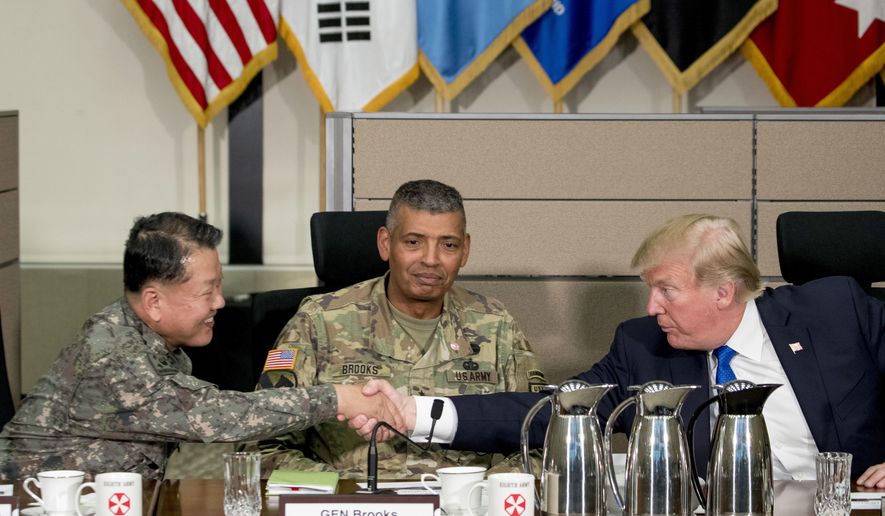The commander of some 30,000 U.S. troops based in South Korea warned Thursday that North Korea may be trying to drive a wedge between Washington and Seoul by making sudden overtures toward diplomacy with the South.
While the Pentagon said Thursday that it will delay joint exercises with South Korea until after next month’s Winter Olympics, Gen. Vincent Brooks, who heads U.S. Forces Korea, said it’s vital for Washington and Seoul to maintain an “ironclad and razor sharp” alliance and joint combat readiness.
The seemingly mixed messages from the U.S. military come amid a wave of peace overtures that Pyongyang has made toward Seoul. The gestures began with North Korean dictator Kim Jong-un’s New Year’s Day proposal for immediate talks with the South and statement that his country seeks to join the Winter Olympics.
Gen. Brooks took a cautious posture toward the situation Thursday.
“We can be generally pleased by the recent overtures that happened. But we must keep our expectations at the appropriate level,” he said at a lecture in Seoul, according to South Korea’s Yonhap News Agency.
The agency noted that Pyongyang’s sudden openness to direct talks with Seoul could be part of a North Korean strategy to keep apart five countries — South Korea, the U.S., China, Japan and Russia — with the goal of weakening their collective power to influence the North’s behavior.
While such speculation hangs in the backdrop, the Trump administration appears to be taking steps to avoid military drills that might anger North Korea and disrupt the prospect of dialogue between Pyongyang and Seoul.
The Pentagon said Thursday that the U.S. has agreed to delay joint military exercises with South Korea until after the Winter Olympics next month. President Trump agreed to the delay in consultation with South Korean President Moon Jae-in, according to Pentagon spokesman Col. Rob Manning.
“The Department of Defense supports the president’s decision and what is in the best interest of the ROK-U.S. alliance,” Col. Manning said in a statement.
The Associated Press noted that the decision pushes back a set of annual military exercises known as Foal Eagle, which normally are held between February and April. Foal Eagle is a series of exercises designed to test the readiness of the two countries’ militaries.
The Winter Olympics begin Feb. 9 in Pyeongchang, South Korea.
• Guy Taylor can be reached at gtaylor@washingtontimes.com.




Please read our comment policy before commenting.